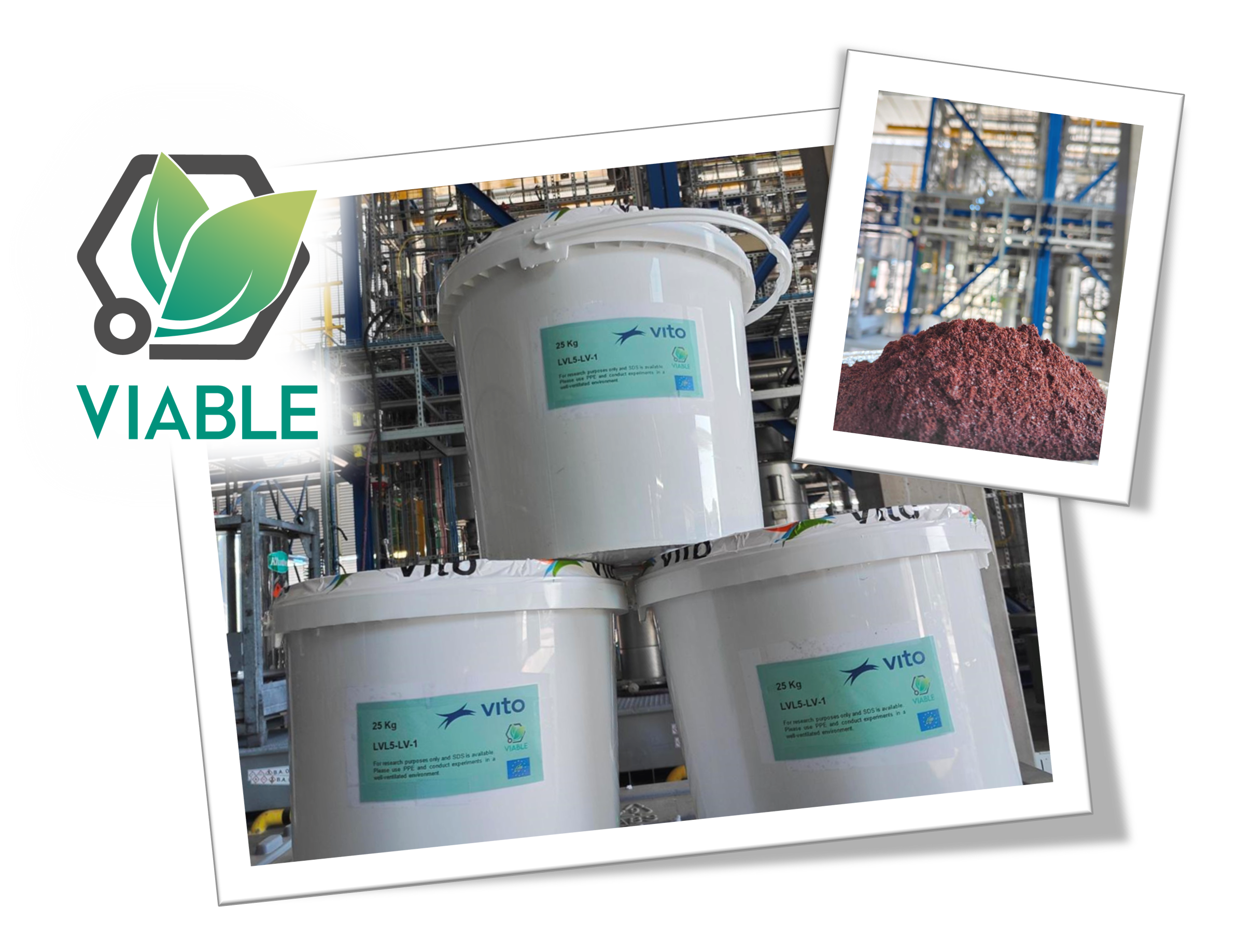News
06-06-2025
First large-scale delivery of depolymerised lignin by LignoValue Pilot Plant
In April 2025, the LignoValue Pilot Plant successfully completed its first large-scale delivery of depolymerised lignin under the LIFE VIABLE project — a major step forward in sustainable materials innovation at Biorizon co-initiator VITO.
The LignoValue Pilot Plant can produce over 100kg of lignin-derived bio-aromatics daily through a continuous process. This breakthrough product consists of well-defined, soluble, and highly reactive lignin oligomers, made possible through advanced depolymerization processes. The depolymerised lignin produced under the LIFE VIABLE project has now been shipped to Westlake, where it will be used in the large-scale production of lignin-based epoxy resins for automotive composite applications.
This marks a significant step for this unique pilot infrastructure and toward replacing fossil-based materials with bio-based alternatives, paving the way for a greener future in the automotive sector.

Why use lignin to produce aromatics?
Lignin is one of the most abundant organic materials on Earth. The molecule is created by nature itself and strengthens plants and trees. It’s a by-product of industries like the pulp and paper industry. Most of it is currently incinerated and therefore only energetically valorised. As a resource for bio-aromatics, lignin has a lot more potential.
Currently, around 40% of all chemicals are fossil-based aromatics. Thanks to its chemical structure, lignin can replace many of these resources. By turning lignin into circular resources and products, the chemical industry becomes less dependent on finite fossil fuels.
Moreover, lignin-derived bio-aromatics are less toxic than fossil-based building blocks and add various positive qualities to materials, such as stability, anti-bacterial and anti-microbial properties, waterproofing, higher UV protection, and thermal resistance.
Read more on lignin and the LignoValue Pilot Plant
About the LIFE VIABLE project
The overall objective of the LIFE VIABLE project is to reduce the environmental and health impacts of BPA by lowering its content in the formulation of epoxy resins by 20 to 50%. To reduce the BPA content, Glycidylated Lignin Oil (GLO) will be used in epoxy-based composite materials.
The LIFE VIABLE project has received funding from the European Union under the grant agreement No. LIFE20-ENV-BE-000671. The contents of this publication are the sole responsibility of LIFE VIABLE partners and do not necessarily reflect the opinion of the European Union.







